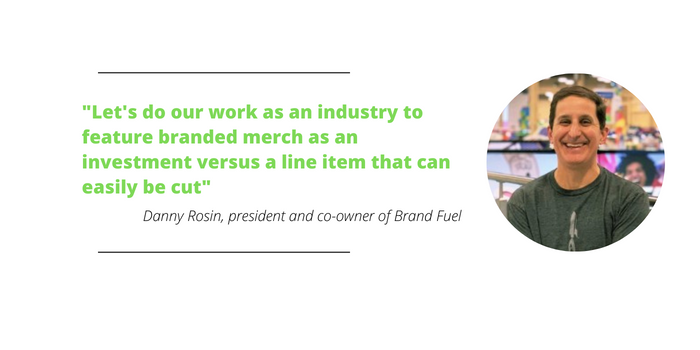WSJ Report Finds Corporate CEOs Eyeing Cuts To Swag, Other Perks

A Wednesday report in the Wall Street Journal discusses the heightened urgency and tightening budgets implemented by a growing number of CEOs amid fears of a recession caused by increasing inflation.
Among the cost-saving measures brought up is the elimination or reduction of promotional products such as t-shirts and coffee mugs.
The Article:
The report paints a broad strokes picture of CEOs being more assertive in cost-saving measures and more direct with their expectations of employees work output, putting aside worries of how that may affect employees’ perception of them. The article reports that tech giants like Google and Meta have communicated messaging to staff about outlook, expectations, urgency and focus, seemingly in preparation for an economic recession either already underway or coming in the near future.
- The piece goes on to mention CEOs “beyond tech” who are telling employees to reconsider spending on certain expenses, including “corporate swag.”
- Wall Street Journal quotes Ellen Kullman, chair of Carbon Inc., as calling it “fundamentals 101” that companies are looking for ways to conserve cash.
- Taking it a step further, Axon Enterprise Inc., which sells Taser guns and body cameras to police departments, has named a “swag czar” who must approve employee orders of logoed t-shirts, hats and other items.
- “Sometimes we get to where we need a swag detox,” Rick Smith, Axon’s CEO is quoted as saying. “Not every event needs a t-shirt.”
To some extent, there is nothing unusual about companies looking for various ways to save money during economically difficult times. Limiting spending in certain areas is a strategy that may be implemented to avoid laying off employees.
Danny Rosin, president and co-owner of distributor Brand Fuel, says that the effect of a potential recession is something promo companies should reasonably be prepared for, to some degree.
“I think we can look at history as our guide, and that indicates a very likely dip in sales,” Rosin says. “There is no doubt that there are CEOs who do not see our medium as having value, and those who cut ‘non-critical’ expenses swiftly to keep a company fiscally strong.”
Brittany David, chief revenue officer at supplier SnugZ USA, agrees that economic forecasts don’t tend to remain static indefinitely, and that doesn’t necessarily require panic.
“We always say our industry is a lagging indicator,” David says. “Business is still booming and people are still spending. With a looming recession — and some saying we are already in one — we all have to make strategic decisions on spend. If you’re smart, you try to budget based off different projections/scenarios. You identify where you can cut if necessary and identify the triggers before you are in the moment. We have a tendency to spend more — on anything — when the days are good and less when the days are bad.”
Rosin also countered that assumption with a belief that the past few years have shown that promotional products can be useful tools to companies during down times.
“I think there is a big-time case for the current industry versus what was pre-pandemic,” Rosin says. “Those progressive CEOs are seeing value in our connection points with employees at home, customers who need to be reminded of our clients’ products and services beyond the digital and see a slow down as an opportunity to prospect. The pandemic was a gift for our industry in this regard.

Where and how companies choose to save money amid economic uncertainty is something that the promo industry can’t control, but Javier Melendez, national sales executive at distributor Walker-Clay, says that it is crucial to reinforce the importance of promotional products so that those same companies don’t carry on the belief that promo is unnecessary to success.
“CEOs may think the mug, the t-shirt [or other promotional products] may be fun items,” Melendez says. “But how do we as the industry communicate to the CEOs that it’s not just fun extra stuff, but apparel for your team members to keep them looking sharp, drinkware with company values or coolers to support a wellness initiative?”
The Wall Street Journal article’s most clear point is that many companies are aware that difficult economic times will potentially be ongoing for the near future, and finding ways to save money is an inevitable possibility of that assumption. To Rosin, that only means it is a time to do what the promo industry already prides itself on: reminding brands of their utility.
“Let’s do our work as an industry to feature branded merch as an investment versus a line item that can easily be cut,” Rosin says. “Consider the power of thoughtful, utilitarian and sustainable branded gear that helps recognize staff, thank customers and help companies connect with prospects that might not give them the time of day if they did not offer them something of value for their time, data and insight.”
David says there are strategic decisions to be made through these times, but she remains optimistic.
“As it relates to promotional items and advertising, I think it depends on protection mode vs. growth mode,” she says. “Some might double down while others pull back. With the shortage of people in the workforce, it’s wise for companies to invest in who they want to retain.
“I think this holiday season will still be hot.”

